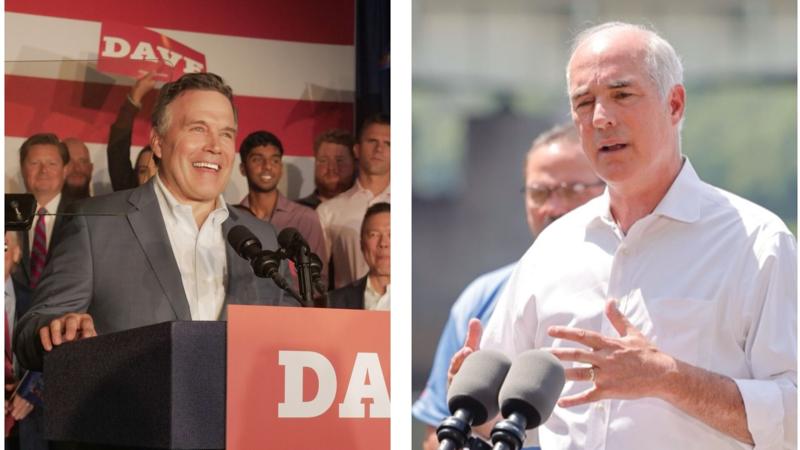Turning down inflationary pressure remains front of mind for voters in Pennsylvania.
The two U.S. Senate candidates vying to represent them for the next six years both want to fix it, but don’t even agree on why it exists.
For incumbent Democratic Sen. Bob Casey Jr., the correlation between corporate profits – up 75%, five times the rate of inflation, he says – equals causation. Republican challenger Dave McCormick said bad economic policy from the Biden administration deserves all the blame.
“Corporations were engaged in price gouging, taking advantage of the pandemic and the inflationary pressures and I think we should do something about it,” Casey said. “We should point it out like I have, issue reports on it.”
Then there’s legislation he supports, alongside Vice President Kamala Harris, that fines companies accused of price gouging. According to a recent Voters’ Voice Poll, 46% of respondents support the idea, though views are mixed about how it would impact prices.
McCormick is far more certain about the consequences.
“This legislation? It’s saying the government should decide,” he said. “This is socialism.”
Under Harris’ plan proposed in August, the Federal Trade Commission would impose “harsh penalties” on companies that break limits on price gouging, though it’s unclear what those limits or fines could look like.
Critics, including McCormick, say price caps have been tried before – by the Nixon administration in the early 1970s in the U.S. and by Communist regimes worldwide – and they cause more harm than good.
The Republican nominee said $5 trillion in new spending authorized by the Biden administration helped drive up rent, gas, groceries and utilities prices by double digits. McCormick added that Casey voted for the appropriations, too.
“The one thing we learned in the Army Day 1 is you’ve got to take responsibility for your actions,” he said. “He’s not taking responsibility for his actions. These votes were obviously going to drive this inflation problem. It’s killing middle-class families, and we need to change.”
Casey said McCormick’s support for the 2017 tax cuts enacted under former President Donald Trump won’t help those same families and will increase the deficit by more than $4 trillion.
“It will explode the deficit,” he said. “It makes no sense to do that.”
Instead, the government should expand the federal child care tax credit, he said, as was done temporarily during the COVID-19 pandemic. The White House said childhood poverty reduced by half, reaching record lows for Black, Hispanic, Asian and Native American families.
McCormick said Casey and the Biden administration “don’t understand the economy,” noting that the 2017 law gave a family earning $50,000 annually a $2,500 tax break. He also pointed to a Democrat-led effort to undo the $10,000 cap on state and local tax deductions, which is set to expire at the end of 2025.
Before 2017, taxpayers who itemized could deduct the amount of property, sales and income taxes paid to the state. Critics say high-income filers primarily benefitted from the break.
According to the Tax Foundation, a conservative policy group, before the cap, 91% of SALT beneficiaries reported incomes over $100,000 and primarily lived in six states: California, New York, New Jersey, Illinois, Texas and Pennsylvania.






